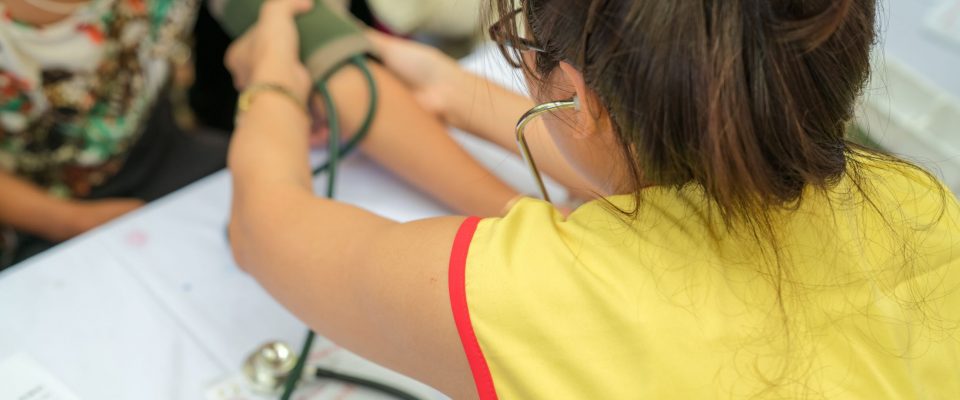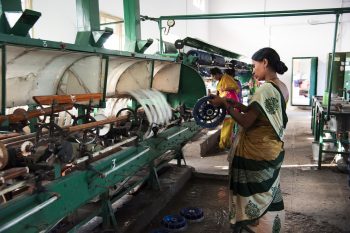Measurement area finding
Health and well-being

Company performance averages at 25%, with 26 companies (74%) taking some action. When comparing value chain elements, companies are displaying stronger efforts in the supply chain (32% on average) than in the workplace (17%).
This measurement area includes the following three indicators:
26. Health information and services for employees
Twelve companies (34%) cover the costs of health information and services specific to the needs of women employees. Most of these companies offer mental health services, such as free short-term counselling, to employees in select locations. Four companies (Abercrombie & Fitch, Carter’s, Hanesbrands and Levi’s) cover some sexual and reproductive health costs, such as providing employees with access to birth control.
Aditya Birla is the only company that covers some of the costs associated with maternal, sexual and reproductive, and mental health information and services for all women employees, for example, by providing post-partum maternal and mental health resources as well as access to consultations with gynaecologists.
27. Safe and healthy work environment in the supply chain
While 18 companies (51%) require suppliers to provide workers with drinking water, only seven companies (20%) address the specific needs of women workers, such as requiring breastfeeding rooms, prohibiting exposure to chemicals that could impact reproductive health or providing access to reasonable transport to and from work facilities: Adidas, Aditya Birla, Amazon, Gap, H&M, Nike, Under Armour, VF Corporation. Thirteen companies (37%) monitor whether their suppliers adhere to these health and safety requirements.
To further support suppliers in ensuring a safe and healthy work environment for their women workers, 15 companies (43%) require their suppliers to provide health and safety training to workers and 10 companies (29%) offer additional capacity building, with seven companies offering both: Adidas, Associated British Foods (Primark), Inditex, Levi’s, Marks & Spencer, PVH, VF Corporation.
28. Health information and services in the supply chain
Nine companies (26%) have made a commitment to gender-responsive health information and services in its supply chain.
Only four companies (Hanesbrands, Nike, Under Armour, VF Corporation) require their suppliers to have an on-site health clinic with credentialed health providers.
Sixteen companies (46%) actively support their suppliers in providing workers with access to gender-responsive health information and services covering at least one gender-responsive health aspect, such as sexual and reproductive health trainings, hygiene and nutrition workshops, and awareness raising campaigns for HIV/AIDS and other sexually transmitted infections, with 12 companies covering more than three aspects.
